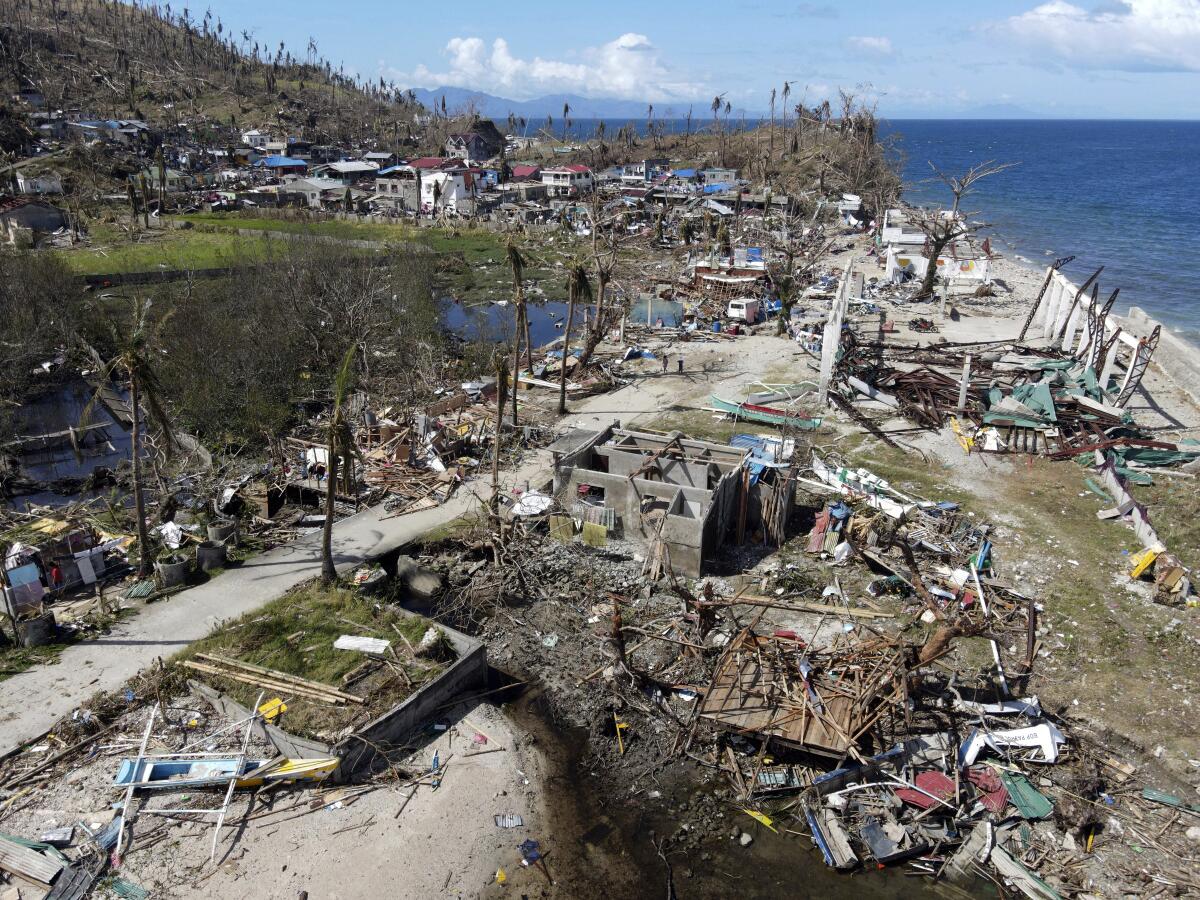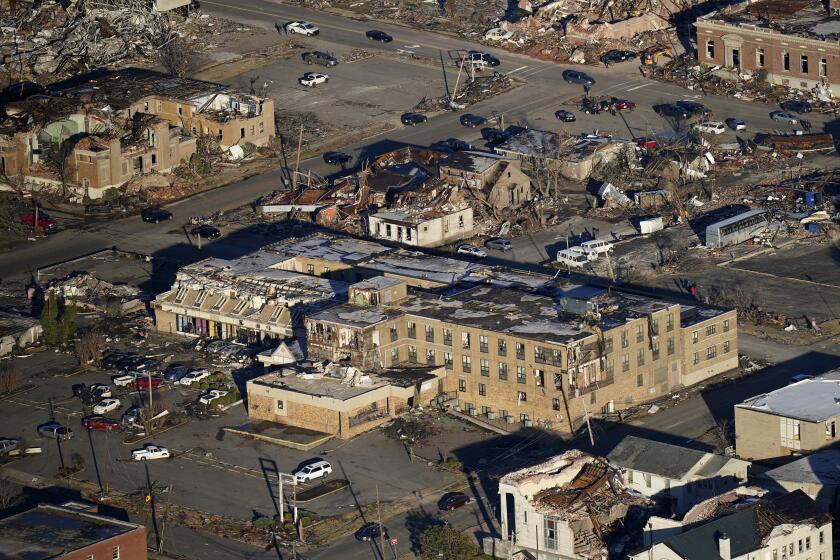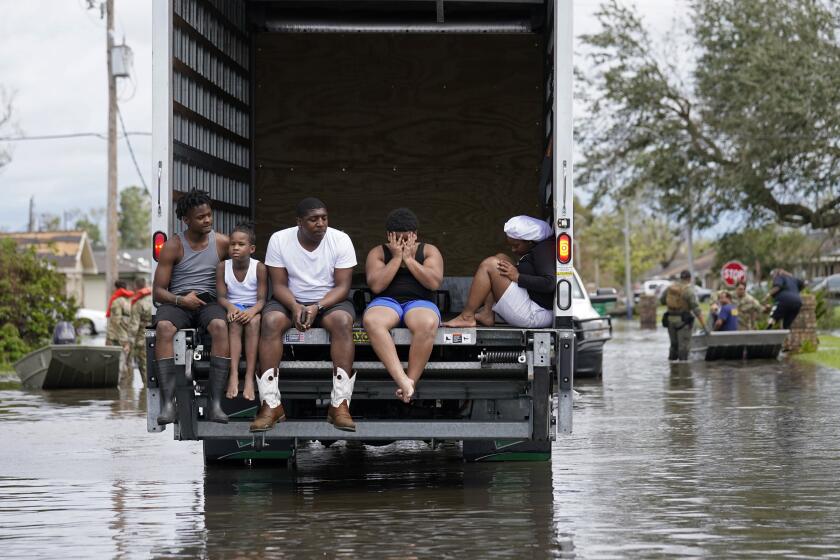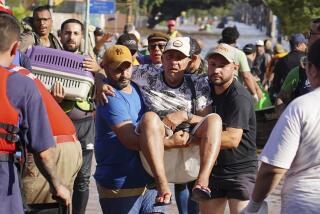Governor of typhoon-hit Philippine province warns of looting unless aid is sent

- Share via
MANILA — The governor of a Philippine province devastated last week by Typhoon Rai pleaded Tuesday for the central government to quickly send food and other aid, warning that without it, army troops and police would have to be deployed to prevent looting because of growing hunger.
Gov. Arthur Yap of central Bohol province said that he could no longer provide rice and other food aid after his contingency fund ran out and that many of the 1.2 million people in his island province, which remained without power and cellphone service five days after the typhoon struck, have become increasingly desperate.
Rai, the most powerful typhoon to hit the Philippine archipelago this year, left at least 375 dead and more than 50 missing, mostly in the central region, including nearly 100 dead in Bohol, according to officials.
President Rodrigo Duterte visited Bohol over the weekend to see the extensive devastation. Yap said the government’s social welfare department promised to send 35,000 food packs — an inadequate amount for the province’s 375,000 families, but even those have not yet arrived.
In an interview on the DZBB radio network, Yap thanked Duterte for visiting his province but said, “If you would not send money for food, you should send soldiers and police, because if not, lootings will break out here.”
Some looting, mostly of small shops, has occurred, Yap said, adding that the situation remained under control. But he warned that the theft could worsen if people, especially in hard-hit island municipalities, grew more desperate. People cannot withdraw money from banks without cellphone connections and power, and fuel and water shortages have also sparked long lines, he said.
A new study says winter tornadoes are likely to be stronger and stay on the ground longer as the world warms.
The national police said widespread looting was not a problem in typhoon-ravaged regions and added that they were ready to deal with any lawlessness.
Typhoon Rai packed sustained winds of 121 mph, with gusts of up to 168 mph at its most lethal point before it blew out into the South China Sea on Friday. The dead were killed mostly by falling trees and in flash floods; 56 people remain missing and 500 were injured, according to the national police. The toll could increase as emergency crews restore communications and power to more towns and villages.
Nearly 1 million people were lashed by the typhoon, including more than 400,000 who had to be moved to emergency shelters as the typhoon approached. Some have begun to return home, but others either lost their houses entirely or need to do major repairs.
A new report from the United Nations weather agency finds that the world is experiencing several times more weather disasters than in the 1970s.
Duterte said government emergency funds have been used mostly for the COVID-19 pandemic but promised to raise $40 million from government agency savings to provide additional funds to typhoon-hit provinces.
The Philippines has not appealed for international help, but Japan said it was sending power generators, camping tents, sleeping pads, water containers and tarpaulin roofing sheets to hard-hit regions, while China announced that it would provide 20,000 food packs and rice.
More to Read
Sign up for Essential California
The most important California stories and recommendations in your inbox every morning.
You may occasionally receive promotional content from the Los Angeles Times.














